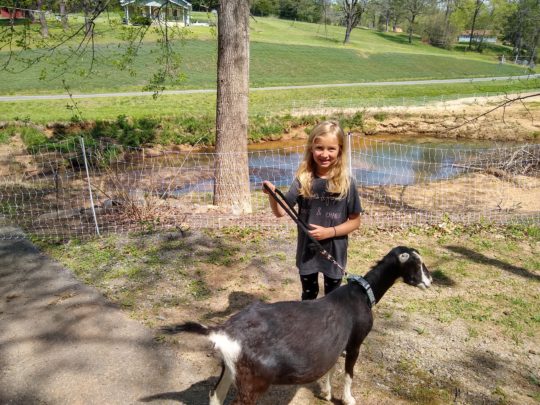
At Happy Egg Farm in Hickory, North Carolina, we raise Mini Lamancha dairy goats. We register our goats with the Miniature Dairy Goat Association (MDGA) using the herd name Happy Egg and the Tattoo HAPP.
Mini Lamanchas are the result of breeding a male Nigerian Dwarf goat with a female Lamancha goat. We like “mini manchas” because they have a very good temperament with our human kids, and are a nice manageable size. Once in milk, a doe reliably produces a quart of milk in the morning and another in the evening. Sometimes we get a little more, though we don’t usually try to maximize production. One or two goats provides plenty of milk for our family, and due to state laws we aren’t able to sell any extra milk that we produce. We value the goats on our farm as vegetation managers and entertainers, in addition to their dairy capabilities.
The goats on our farm are handled daily and are tame like pets. We aim to kid in the spring, ideally from March through June. That helps get the kidding dates into slightly warmer weather. We do not usually milk all of the goats that are in milk, because that would produce more than we would need. Instead we select one or two does and milk each one once per day in the morning. The dams raise the kids, so for the first several weeks, the kids get all of the milk. Then when it’s time for us to start milking, we separate the mothers from the kids each evening. We milk in the morning, then reunite them after milking. Milk from Lamanchas (including our minis) has a high butterfat percentage. For our own use we make cheese, yogurt, butter, custard, eggnog, and more. Goat milk is useful for crafts like soap making, and for supplementing feed for other animals.
Mini Lamanchas are productive members of a homestead, whether for milking, keeping fence lines clear, or just for pets! Depending on your needs and budget, we can supply registered goats, wethers, or quality pets. We have around 50 goats, odds are good we have the right goat for you!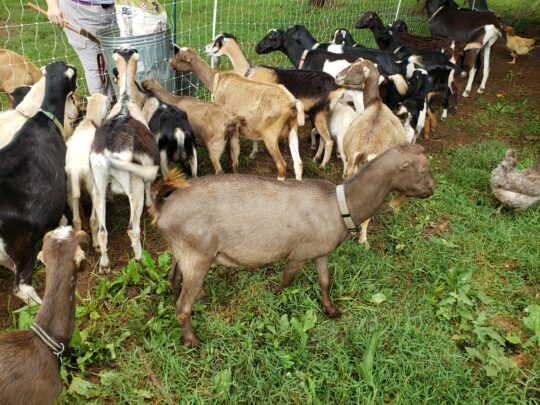
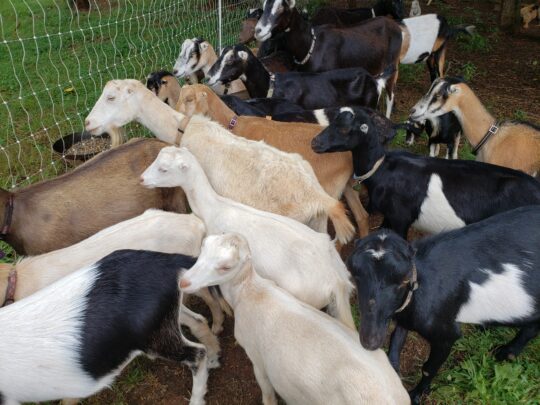
If you are interested in reading more about our goats and their housing here are some articles you may find helpful: Why “mini manchas” , Premier Fencing , Housing options , Cute Baby Goats , Water Movement
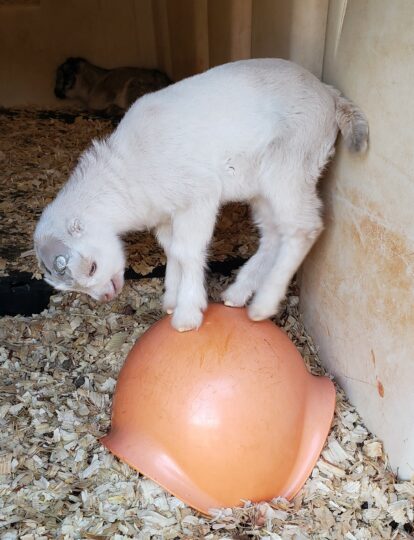
Here are a few of our featured goats that are available, with details below the chart:
Summer 2025 Goats for Sale
| Goat | Status | DOB | Price |
|---|---|---|---|
| Mary | Open Doe, F4 Gopher Ears | 3/18/2021 | $250 |
| Charlotte | Doe in milk – F4 Gopher Ears | 3/25/2023 | $250 |
| Lovey Dovey | Open Doe, F4 Gopher Ears | 2/15/2024 | $200 |
| Males | |||
| Pets | |||
| Sugar Cube | Wether | 3/21/2024 | $75 |
| Rusty | Wether | 4/15/2021 | $150 |
| Apple Blossom’s 2025 Kids | 2 Doelings, Pet Goats (no papers) | 1/26/25 | $100 each |
| Charlotte’s 2025 Kid Oreo | Buckling, Black with white belt (no papers) | 2/20/2025 | $100 |
Each of our goats have interesting and unique personalities. If you want to read more about our herd and goats for sale here are a few. If you are interested in any of the above goats and want more information, please reach out!
Mary
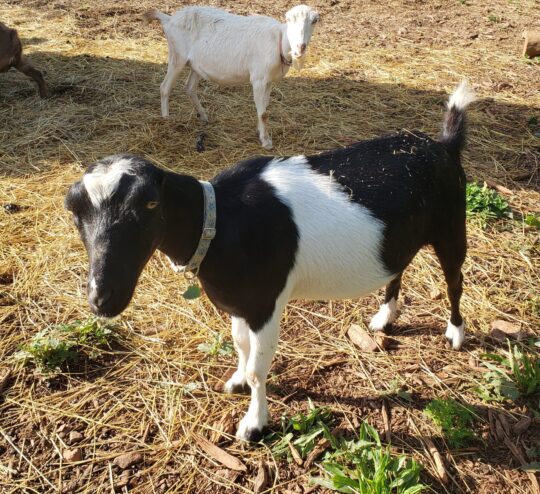 Mary is a fourth generation, hardy, and sociable mini-Lamancha doe, She has a broad stature and loves to be the center of attention. Mary has not yet kidded this year (she is open). She was born in the spring of 2021 with one sister. She would be perfect for any family looking for a pet or herd member. Mary has a very unique split of colors from one side to the other, much like a chess board.
Mary is a fourth generation, hardy, and sociable mini-Lamancha doe, She has a broad stature and loves to be the center of attention. Mary has not yet kidded this year (she is open). She was born in the spring of 2021 with one sister. She would be perfect for any family looking for a pet or herd member. Mary has a very unique split of colors from one side to the other, much like a chess board.
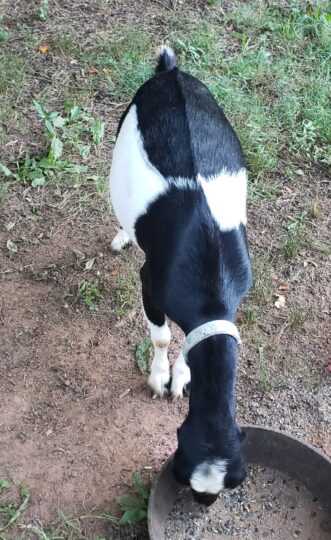
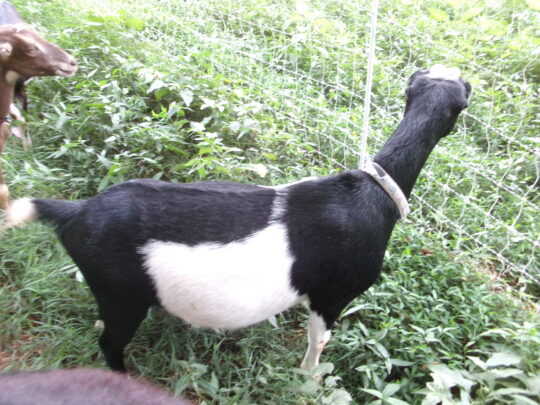
Charlotte
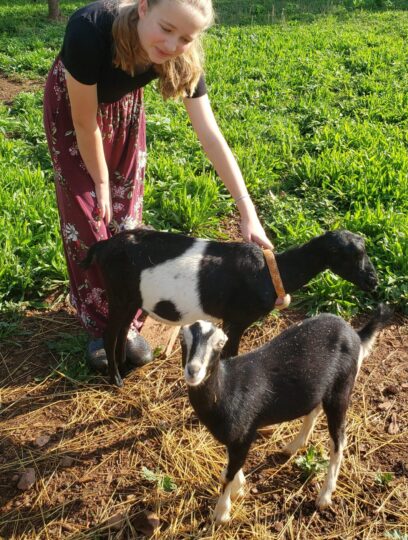 Charlotte is a little bit smaller than most of our goats and likes to be fed. She had twins in 2025 and was a very good mother, adopting two other goats. When milking, I recommend using the machine milking technique. With lots of love and care, she could be a very sociable goat for any family.
Charlotte is a little bit smaller than most of our goats and likes to be fed. She had twins in 2025 and was a very good mother, adopting two other goats. When milking, I recommend using the machine milking technique. With lots of love and care, she could be a very sociable goat for any family.
Lovey Dovey
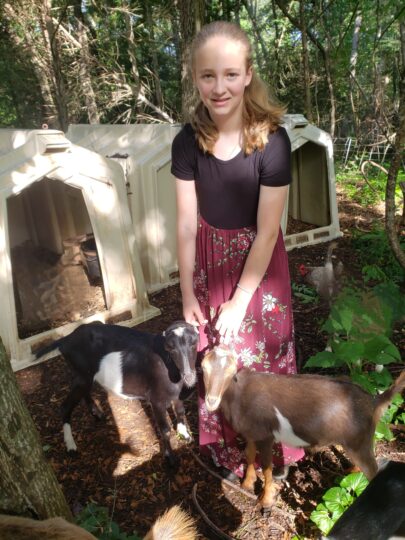 (description coming soon)
(description coming soon)
Studs and Bucks and Wethers
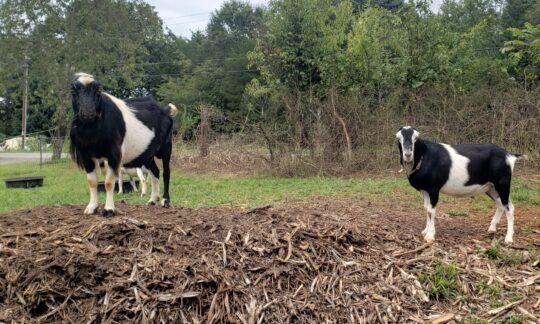
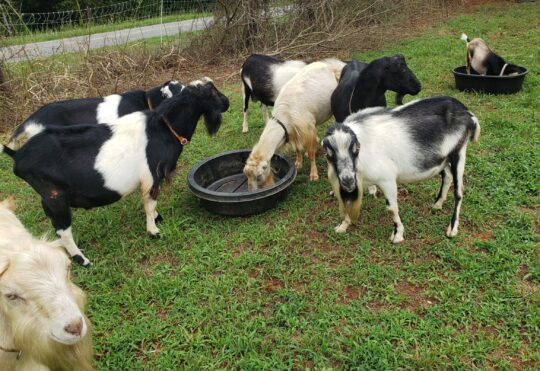
Rusty
Rusty is a mostly-black wether.
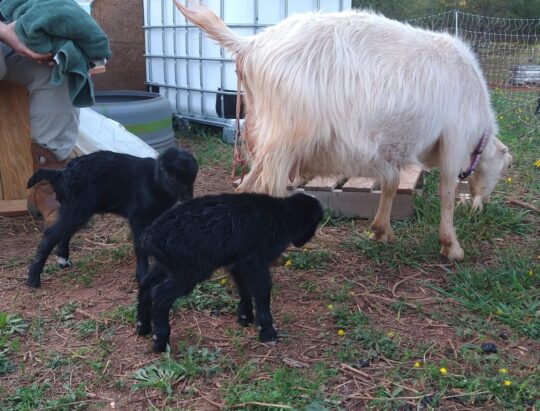
He was born on 4/15/2021 to one of our most hardy and independent does, Oriole. The sire was Sycamore, our F3 born in 2020 who is also for sale. He is a nice and hardy goat and was castrated at the end of August 2022.
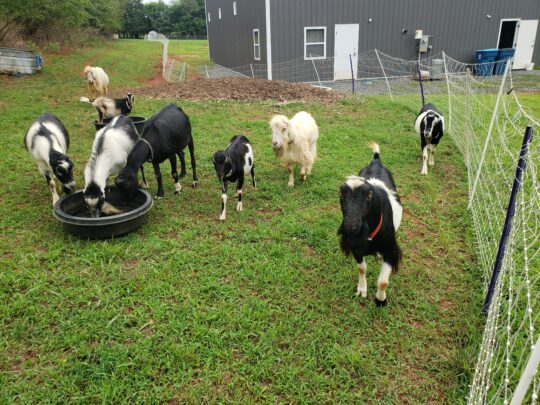
Speaking of stud service, we currently have several bucks available. Some options include Starlight Dogwood, Wonder, and any other bucks you saw above. This year has brought us a few new bucklings to be excited about too. Coordinate with us before kidding season so that we can have a plan, and a discussion about herd management and disease testing. Once your doe is in standing heat, bring her by for a visit. If she’s ready, it will take about 5 minutes in the driveway. The fee is $50, which trust me, is a much better option than keeping a stinky buck around during the rut season!
One option is “Dusty” (Starlight Dogwood), a polled, F3 cream buck and proven sire that we have loved his personality and enjoyed seeing his progeny.
He was born 4/24/2021:
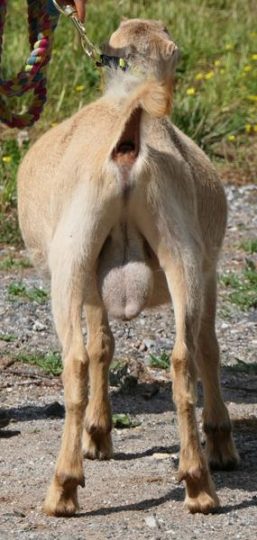
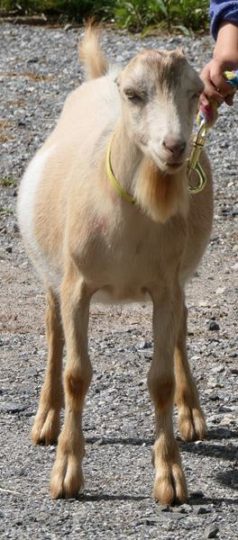

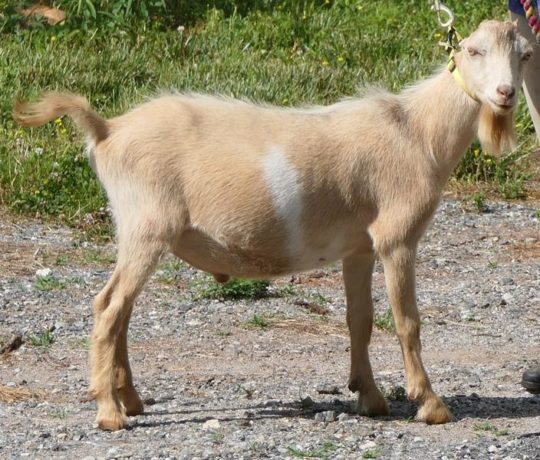
We have truly enjoyed our homestead adventures with mini-Lamancha goats and we would love to help you get started with some for your family too!
It’s amazing to realize the young girl at the top of this page has grown up along with our beloved goats. She has helped with husbandry, kidding, showmanship and contributing to the content and pictures on this page.
Goats can give back so much and they have been an integral part offering lessons about life and animal care through the years.
Please come visit to select your goats! We hope to see you soon!
 Happy Egg Farm
Happy Egg Farm